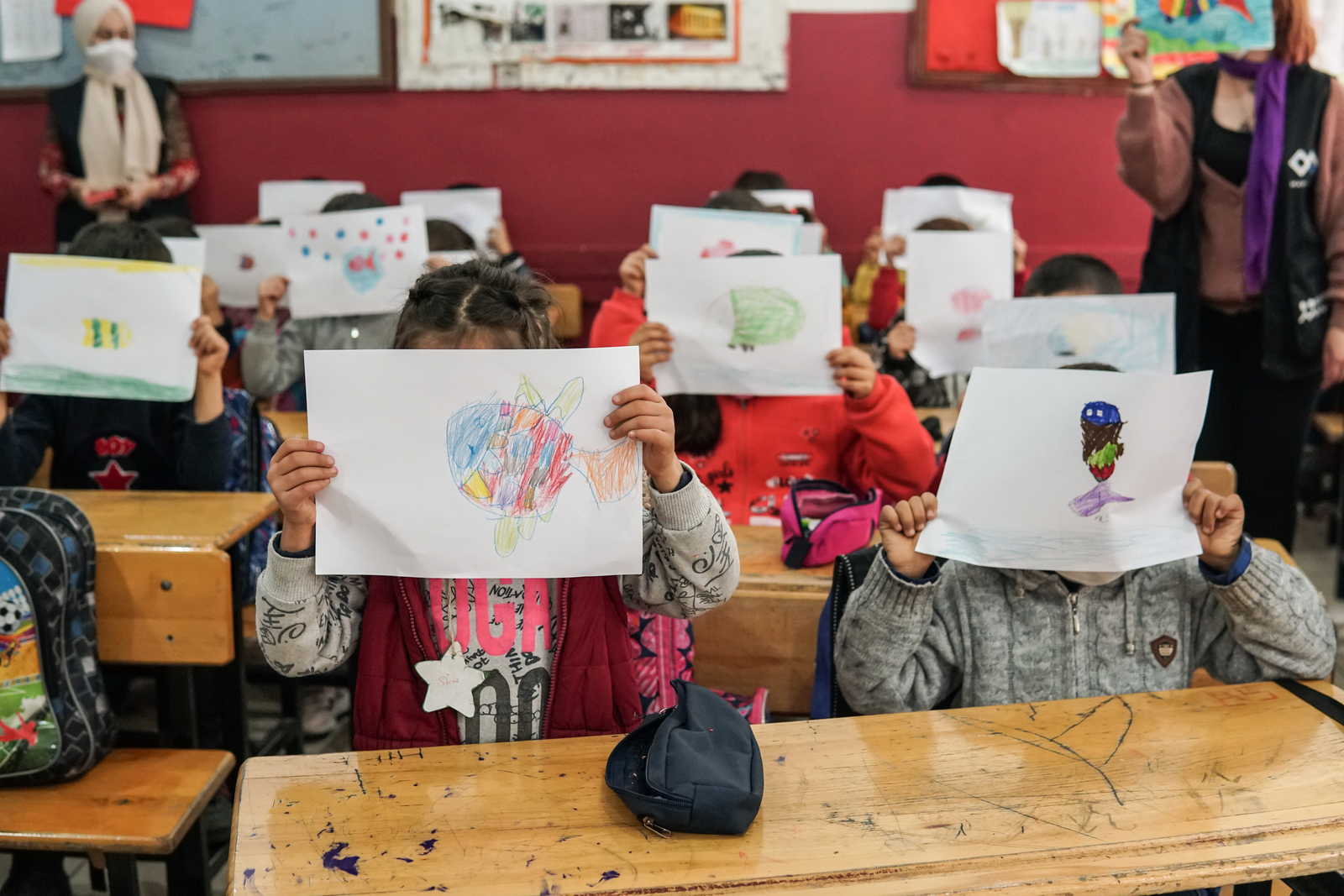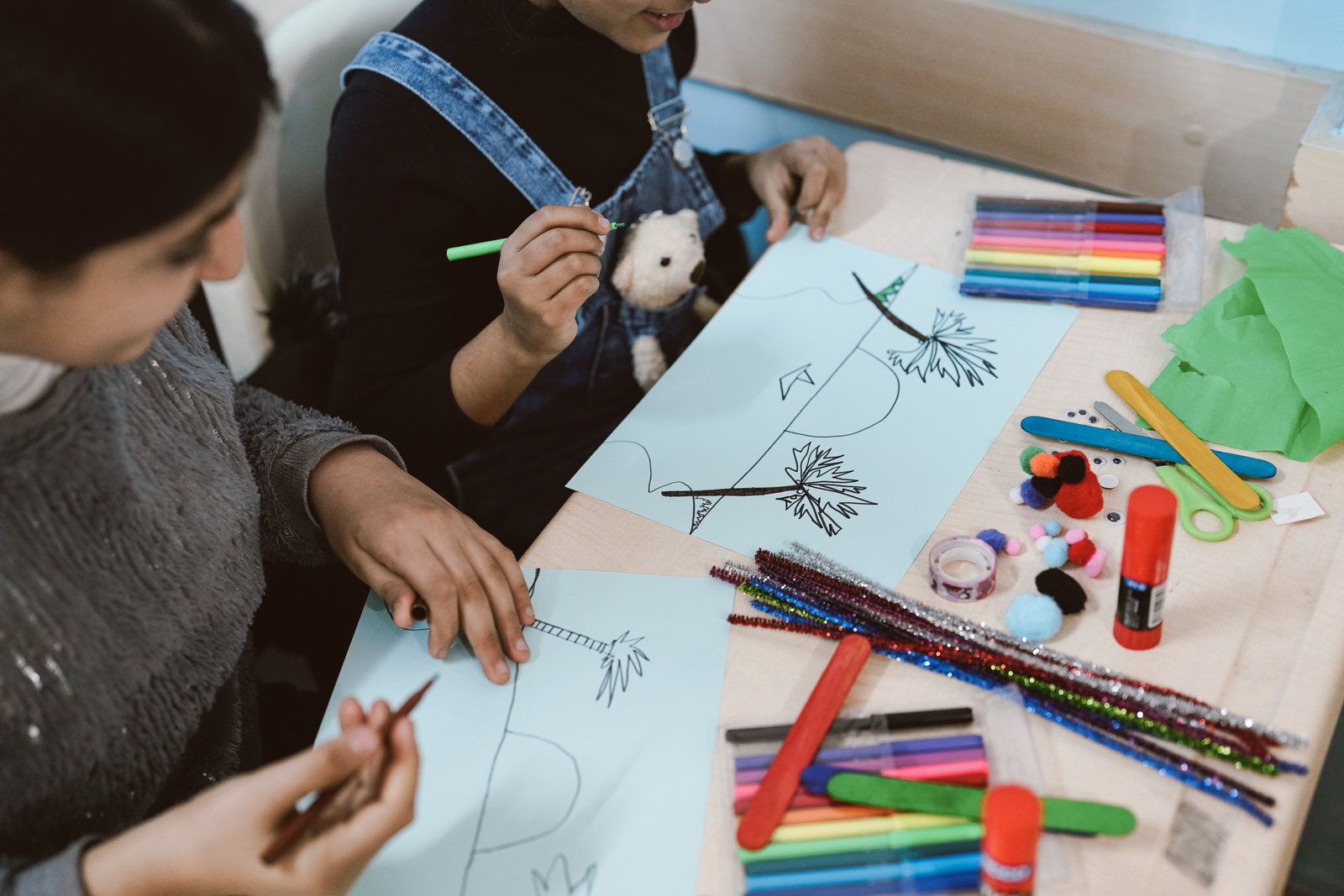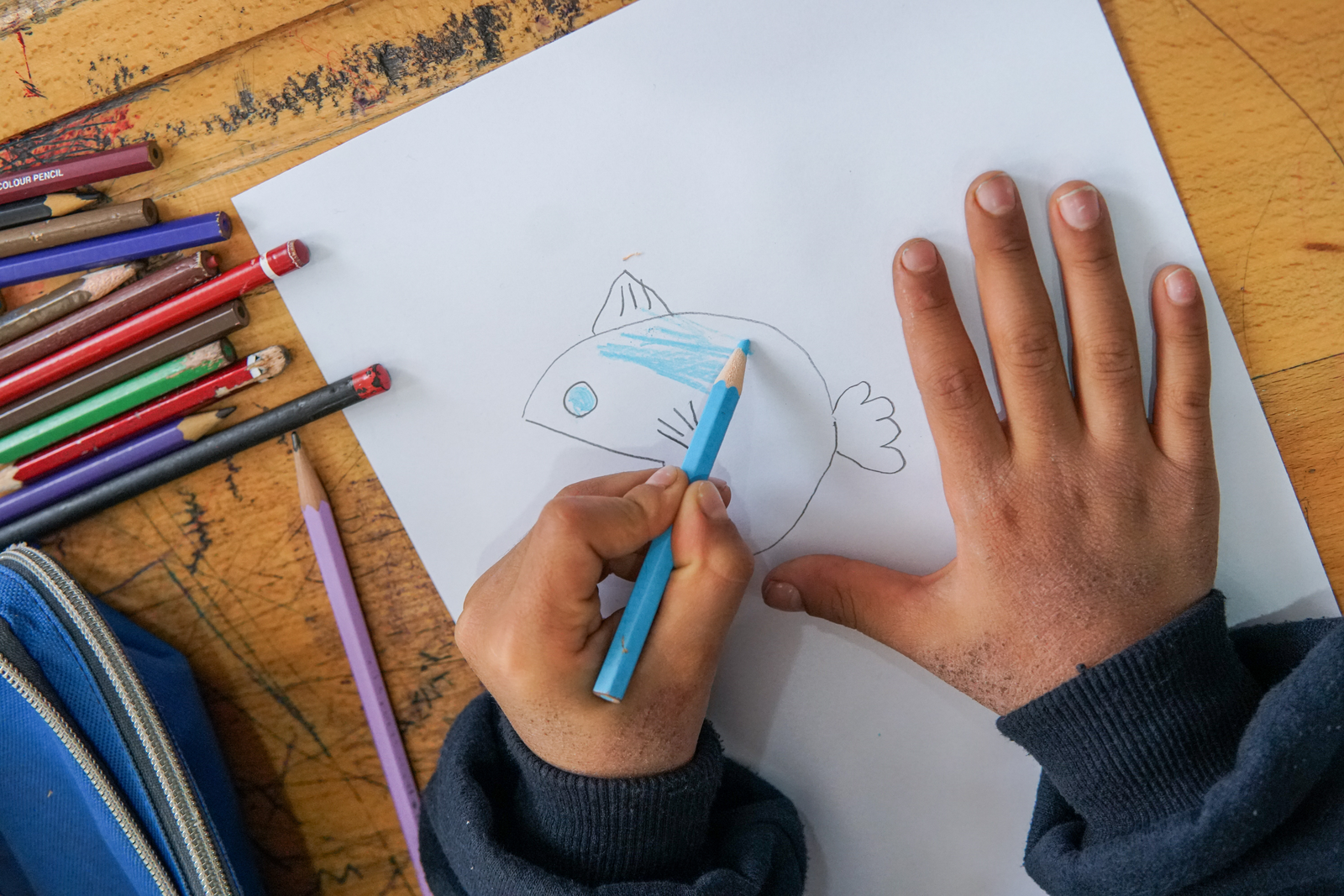One year on: how emergency aid helped children traumatised by earthquake

A programme supported by Theirworld reached thousands of children - many of them refugees - who were affected by the disaster that struck Turkey.
One year ago today, two massive earthquakes rocked southern Turkey.
They killed more than 50,000 people, damaged or destroyed 230,000 buildings and left huge numbers of children – many of them Syrian refugees – traumatised and struggling to cope.
The disaster “had a huge effect on my kids,” said Amina, a 35-year-old mother from the city of Şanlıurfa.
“They were afraid and shocked, they lost their appetite. If a spoon fell it would scare them. It had a huge impact on them.”
But an emergency programme supported by Theirworld provided psychological aid to traumatised children. The Turkish organisation Maya Vakfi set up mobile teams of psychologists and social workers to identify affected children and give them essential support, including innovative approaches such as creative arts therapy.

Syrian refugee students draw pictures as part of their art therapy session, held by Maya Vakfi as part of its emergency programme to support traumatised children in Turkey (Theirworld/Didem Kendik)
Ezgi Berktaş, Programs Coordinator at Maya Vakfi, said: “The project offers access to art-based mental health care, including structured group sessions and individualised support for children. These sessions include art therapy, dance and movement therapy, and music therapy.”
As well as in-person and online sessions for children, Maya Vakfi held dozens of parenting events for more than 700 people in Şanlıurfa and Hatay province. The changes in some of the children were dramatic.
“My son attended a few sessions and the improvement was immense – I would say up to 90%,” said Amina. “He became more secure and less afraid, his self-confidence increased.
“I want him to be full of self-confidence to pass it to the future generations. These psychological support sessions are not just for him in his childhood, they are also for his grandchildren.”
Syrian refugee Hanah, a 32-year-old mother of four, agrees. She said: “My kids were terrified a lot. My son Fadil was the one who suffered the most.
“He benefitted a lot, his psychological state changed completely. After the sessions, he doesn’t say a lot but I see him – his movements at home, everything has changed. Even his situation in school has gotten better.”

A student draws during an art therapy session held by Maya Vakfi at Kanuni Sultan Süleyman İlkokulu primary school in Şanlıurfa, Turkey (Theirworld/Didem Kendik)
Refugee children often live with trauma that can lead them to become aggressive, isolated or unfocused. Theirworld had previously supported Maya Vakfi’s Trauma Informed Schools programme, which helped more than 1,000 teachers provide tailored psychosocial support to 5,000 Syrian refugee and Turkish students.
But last year’s earthquakes meant an emergency programme of psychological first aid was required.
One of the children it reached is Khaliq, a 12-year-old Syrian refugee from Şanlıurfa who lives with his parents and nine siblings.
I need to be strong. If he sees me strong, he will be stronger.
Hanah, talking about her son Fadil
He said the Maya Vakfi sessions “have helped me a lot … they treated us very well, they are lovely and I love them a lot. The support was a great help to us.”
Eight-year-old Nizam, another Syrian refugee, said: “We had a lot of fun, they gave us activities and taught us things.” His favourite part? “That we don’t allow anyone to bully us, to have self-confidence.”